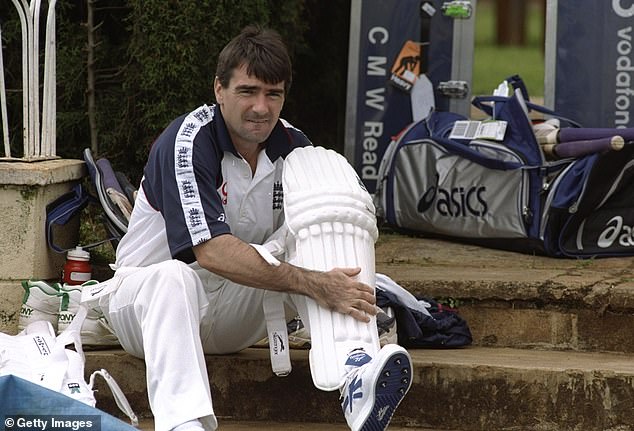The doctor caring for the daughter of an England cricket star has said he was ‘astounded’ at how quickly she deteriorated ahead of her death, a coroner’s court has heard.
Bethan James, 21, the daughter of former Glamorgan and England cricketer Steve James, died on February 8, 2020, just a few hours after being admitted to the University Hospital of Wales (UHW).
A post-mortem examination found Ms James died of sepsis and pneumonia, with complications caused by Crohn’s disease.
Ms James, a journalism student at the University of South Wales, was treated by Dr Duncan Thomas, who said he was surprised by how quickly her condition worsened when she was brought into UHW.
Dr Thomas expressed ‘frustration’ that Ms James had not been brought to the resuscitation area – used for treating the most seriously ill patients – earlier.
However, he did not believe there was anything that could have been done to save her.
Addressing South Wales Central Coroner’s Court on Thursday, Mr Thomas said: ‘I was, I think it’s fair to say, astounded at how quickly Bethan was deteriorating.
‘The rate of Bethan’s deterioration was not something I had previously observed in someone of her age group, and, in my career, I have only ever seen it one more time.’

The daughter of former England cricket star Steve James, Bethan James, died aged 21

Ms James with her father former Glamorgan and England batsman Steve James

Steve James played two test matches for England and used to be the captain of Glamorgan
While dealing with another emergency patient in cardiac arrest, Dr Thomas was informed of Ms James’s worsening condition.
He said: ‘When I went back, Bethan was in a highly distressed state, likely as a result of multiple factors.
‘She was on the edge of the bed, holding on to her mother – Bethan looked extraordinarily unwell.
‘It was my clinical impression at that time that we would be looking at Bethan’s cardiac arrest within a short period of time.’
Throughout the inquest, concerns were raised over whether more could have been done earlier including over paramedics failing to alert the hospital about the seriousness of Ms James’s condition before she was brought in.
While Dr Thomas said the hospital should have received a ‘pre-alert’, he did not believe it would have saved her life, with damage to multiple organs already present before she arrived.
‘It’s my belief that, unfortunately, Bethan would have died,’ he said.
‘Bethan’s presentation and rate of deterioration were incredibly atypical of someone of her age group.’

Ms James, a journalism student at the University of South Wales, was treated by Dr Duncan Thomas, who said he was surprised by how quickly her condition worsened

Steve James was covering Wales’ Six Nations match in Ireland when his daughter was admitted into hospital and was unable to see her before she died

Dr Thomas expressed ‘frustration’ that Ms James had not been brought to the resuscitation area – used for treating the most seriously ill patients – earlier
He told the coroner, Patricia Morgan, that Ms James was suffering from a viral, rather than bacterial, form of sepsis which meant that any antibiotics they were using would not have helped.
‘There would have been nothing that we were providing that would have stopped the ongoing pathology of the viral infection,’ he said.
Dr Thomas said Ms James’s death had a ‘profound’ impact on him and other staff at the hospital, adding: ‘I wish there was something I could have done’.
Dr Anurag Joshi, the pathologist who carried out Ms James’s post-mortem examination, said Crohn’s, an inflammatory bowel disease which he listed as a contributory factor in her death, can lead to immune suppression.
Ms James had suffered with gastrointestinal issues for most of her life and had been diagnosed with Crohn’s disease in 2019.
The inquest continues.
